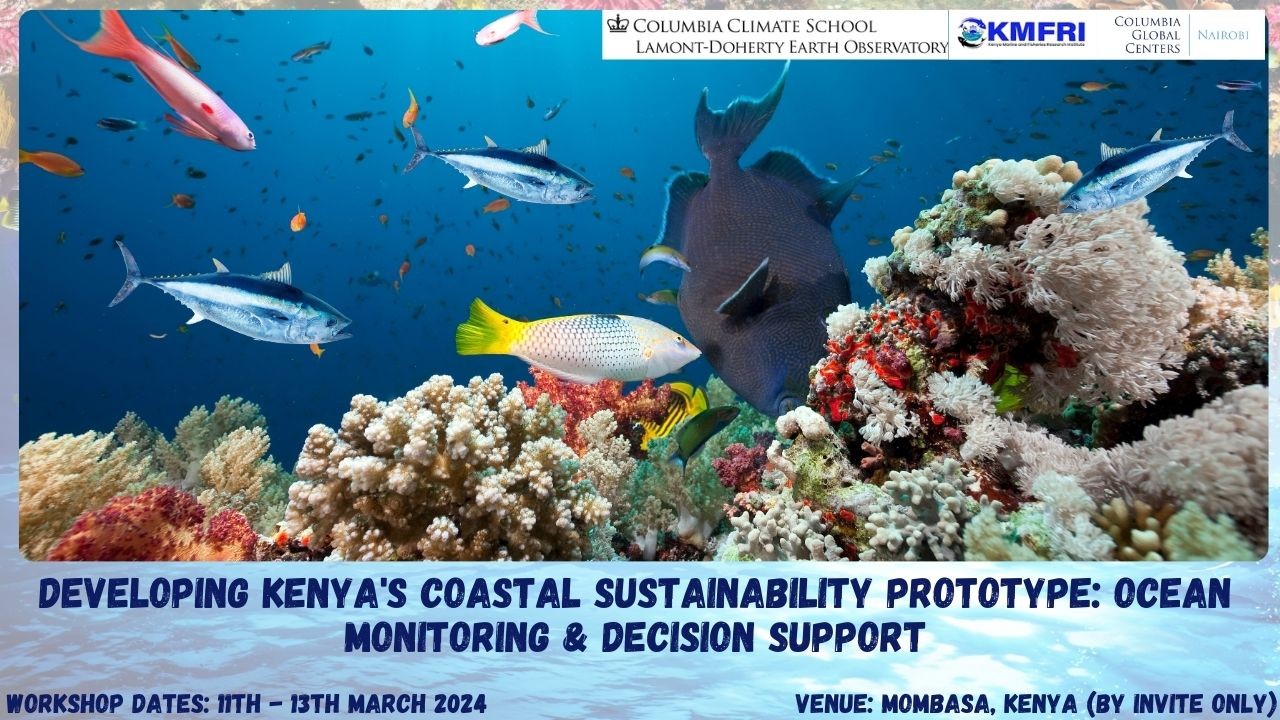This is the first of two trainings for a project led by Joaquim Goes, a research professor of biology and paleo environment with Lamont-Doherty Earth Observatory at Columbia's Climate School, with his co-principal investigators and student researchers. The project is to develop an ocean monitoring and decision support system tailored to meet the Kenya's immediate needs for sustainable management of its coastal resources with the Kenya Marine Fisheries Research Institute. The project -- "Development of a Prototype Kenya Ocean Monitoring and Decision Support System for Sustainable Coastal Resource Management under Climate Change" -- is funded in part by the President's Global Innovation Fund with support from the Nairobi Global Center.
The project is intended to devise a system to use computational tools, satellite data products, and model-derived physical and biological oceanographic datasets developed for an ongoing coastal resource management project in the Sultanate of Oman. The system will also integrate existing and planned marine resource data collections into a Kenya-centric data system that will then be fused with satellite and model outputs to provide information on ocean state, environmental forecasts, potential fishery habitats, and tools critical for management and decision-making for better stewardship of Kenya’s coastal resources.
Initial outcomes of this 2-year study will be used to lay the groundwork for funding from other global agencies, who have expressed interest in aiding Western Indian Ocean countries develop governance plans for sustainable management of coastal resources under changing climate.
The Kenyan Government’s Vision 2030 Blue Economy roadmap aims to fast-track expansion and growth of offshore fishing activities through infrastructure and technology investments that will provide opportunities and prosperity to Kenya’s large artisanal fishing communities. These ambitious plans come against looming threats of climate change, anticipated to impact regional monsoons and oceanographic conditions,
significantly reducing net primary productivity and fish biomass by 2050 in Kenya’s Exclusive Economic Zone. However, as the Vision Plan is in its inception, it provides an opportunity to develop management and governance policies that ensure sustainable exploitation of coastal resources while insulating coastal fishing communities from socio-economic challenges driven by climate change.
